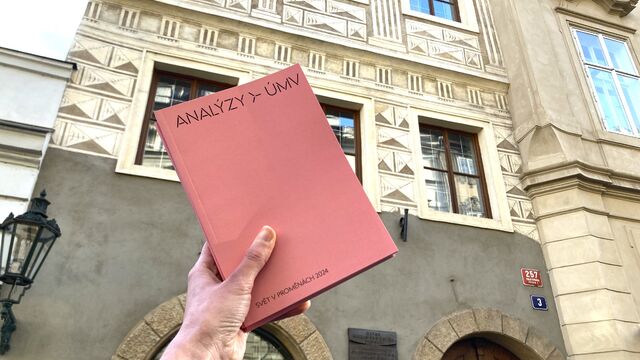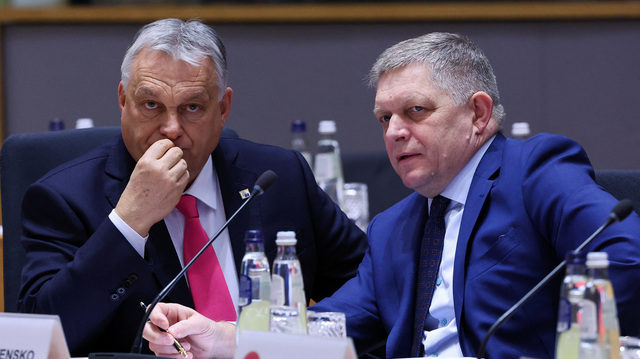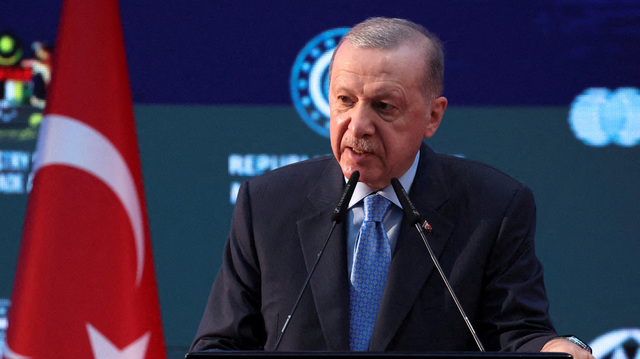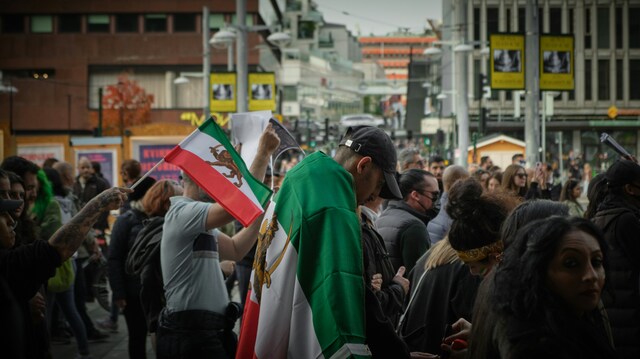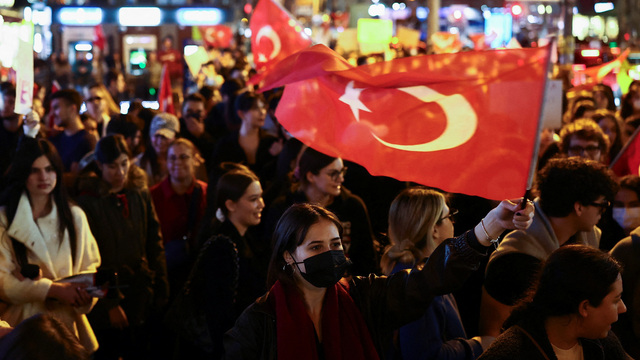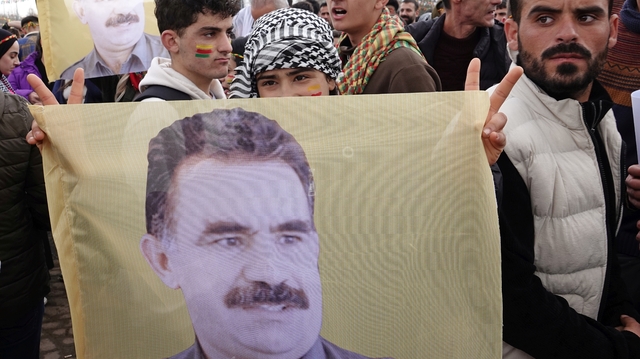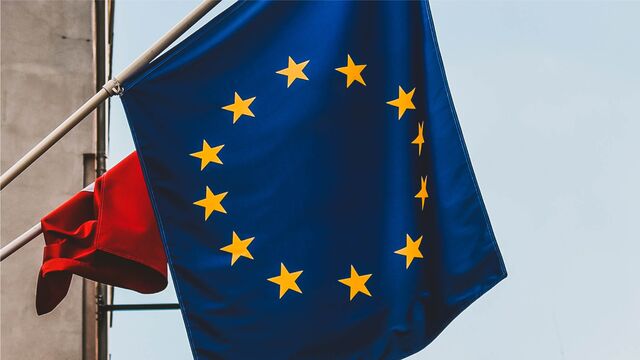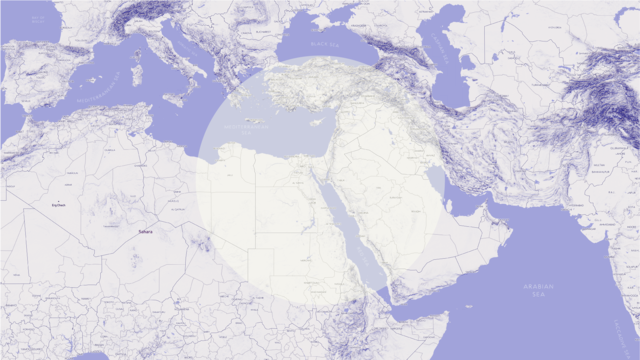Navigating the Region That Refuses (so far) to Pick Sides: The EU in the Middle East Amidst the Great Power Competition and the War in Gaza
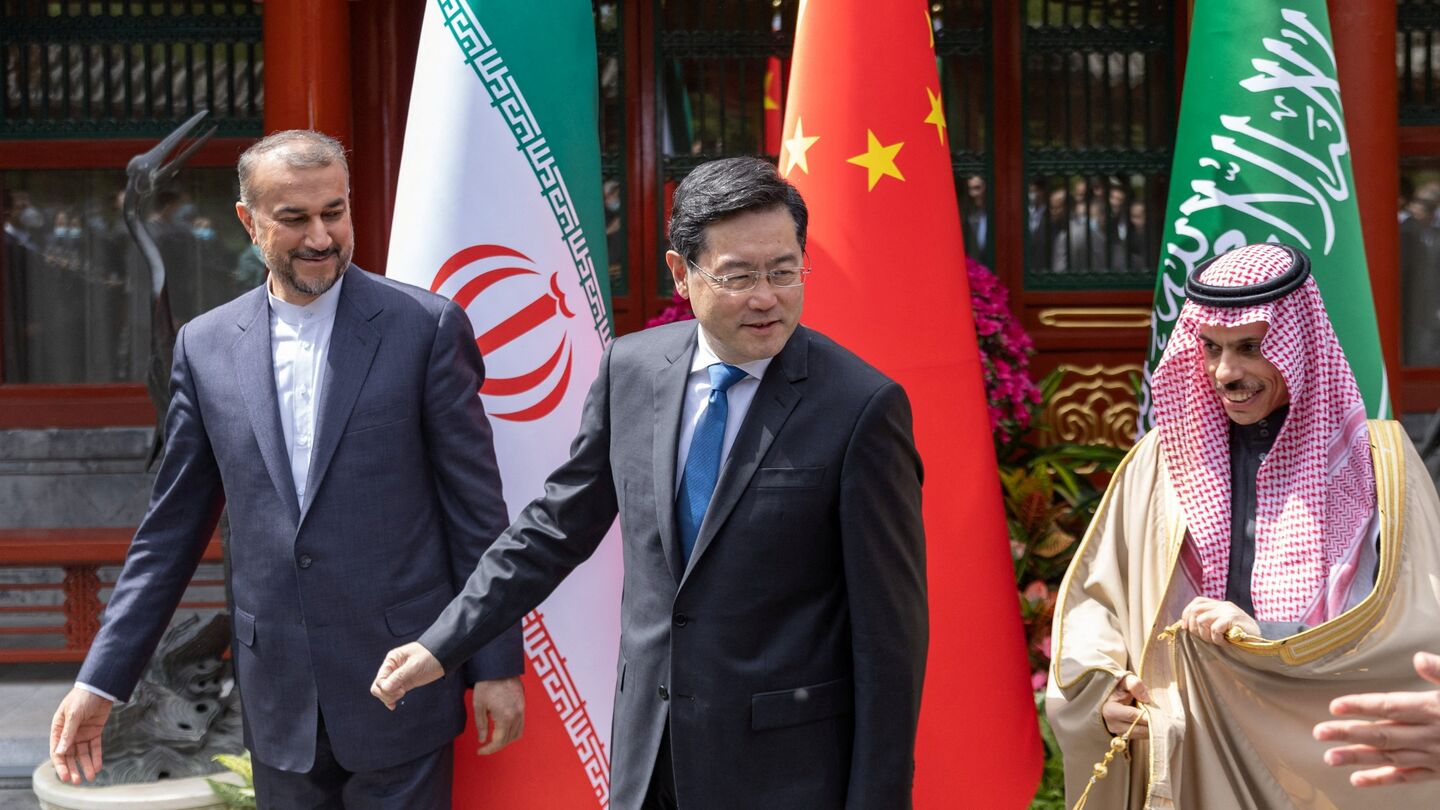
Despite the recent Israel-Hamas war drawing increased U.S. involvement, countries like the UAE and Saudi Arabia maintain close ties with China and Russia, avoiding allegiance to any single global power. Meanwhile, the EU struggles to assert its role amid U.S.-China competition, weakened further by its fragmented response to the Gaza conflict.
Until the Hamas attack of October 7 and the following Israeli onslaught on Gaza, one of the top stories dominating the headlines of Middle East news was the increasing role of China in the region, coupled with the declining position of the U.S. From the ever-expanding trade relations to the more pronounced diplomatic role for China that was manifested by its brokering the final stages of the Saudi-Iranian normalisation deal, China seemed to be making significant inroads in the region. Countries such as the United Arab Emirates (UAE), Saudi Arabia and Egypt were eager to receive Chinese investments while maintaining relations with all other great powers involved in the region. After all, a similar stance was taken by many in the region already following the Russian invasion of Ukraine in February 2022. Many Middle Eastern states have refused to choose one side of the global great power competition.
Will the conflict in Gaza upend this pragmatism? The Hamas attack and the Israeli intervention in Gaza forced themselves on the agenda of regional geopolitics despite previous efforts to sideline the Palestinian issue. More than 22,000 Palestinian casualties (recorded by the Gaza’s ministry of health at the time of writing) and the widespread destruction in Gaza spurred popular resentment around the Middle East. Following the Hamas attack that claimed the lives of 1,200 Israelis, the U.S. threw its support behind Israel’s invasion of Gaza and sought to limit the proliferation of the conflict. On the other hand, China and Russia distanced themselves from Israel and the U.S. by criticising the campaign and calling for a ceasefire. Unlike Ukraine, the war in Gaza has been too close to home for the regional powers to avoid. Yet, as this chapter argues, the regional impact of the conflict so far rather highlights the ongoing trends than creating a new reality. Among other things, this means that the EU faces an increasingly multipolar region where its capability to act and uphold its values and interests is weakened by internal fragmentation and its inability to meaningfully respond to the crisis in Gaza.
Problem: Happy to Play All the Sides
Labelled as one of the most externally penetrated regions, the Middle East could not escape being seen through the lens of the global great power competition. Over the past decade, the U.S. has been gradually downgrading its direct military engagement in the region and other great powers were widely perceived as stepping in. Russia intervened militarily in Syria and increased its diplomatic presence as well as the deployment of private military groups across the region. Although the conflict in Ukraine brought it significantly closer to Iran, Russia kept the communication channels open to all sides of the regional geopolitical cleavages and continued to closely cooperate with the Gulf states. China significantly increased its economic links to the key countries in the region. Aiming to secure access to energy resources in the Gulf as well as Middle Eastern and Western markets, China has supported numerous investment projects in countries such as the United Arab Emirates (UAE), Saudi Arabia, Iraq and Egypt. By 2023 Beijing became the dominant trading partner of many Middle Eastern states. The perceived rise in Chinese influence in the Middle East was only strengthened by the much-publicised Chinese hosting of the final round of the normalisation talks between Iran and Saudi Arabia.
Despite the role played in the region by China and Russia, the Cold War-inspired imaginary of the exclusive zones of influence of each great power proved to be of limited use for understanding the developments in the Middle East. Except for the staunch allies of Russia (and China), such as Syria and Iran, most of the major regional states simply refused to choose one side and continued to cooperate with all the sides based on their interests and preferences.
The UAE represents a prime example of this strategy. The country has been at the forefront of the U.S. supported normalisation agreements between Arab states and Israel. At the same time, the UAE assumed a neutral position following the Russian invasion of Ukraine. It provided a safe haven for the Russian financial elite and shied away from criticizing the Kremlin. Moreover, it has developed a range of new projects with Chinese technological and logistical companies. Even though these activities (as well as the previous U.S. reluctance to act on its security guarantees) put the relations between the UAE and the U.S. under increased strain, the two countries have continued to maintain a close security partnership. The level of the UAE’s pragmatism and ability to maintain relations with all the sides might be exceptionally high. However, similar strategies have been adopted by other regional powers, namely Saudi Arabia.
So far, neither the UAE nor Saudi Arabia changed much in terms of this pragmatism, defying the differing positions of the great powers towards the Israeli invasion of Gaza. The Gulf countries initially reached out to the U.S. for security assurances in case of the escalation of the conflict on the regional level. Yet, they also continued advancing their economic cooperation with China and, to a certain extent, Russia. Both Saudi Arabia and the UAE criticised the humanitarian toll of the Israeli campaign in Gaza, partly in reaction to the popular anger. Nevertheless, the UAE upheld the previous normalizing agreements with Israel. The Saudi position on the potential future normalization looks rather bleak now; however, it did not lead to a significant downgrading of existing ties. Despite the cooling of the relations between China and Russia on one side and Israel on the other, the ongoing normalization remained unaffected. The regional powers have thus managed to compartmentalise their involvement with opposing alliances and maintain instrumental relations with all the sides.
Implications for the EU and the Czech Republic: Self-Marginalisation Amid Internal Fragmentation
The increased openness of the Gulf countries to cooperation with all the great powers left the EU and the Czech Republic in the position of just one of several potential partners. As the EU member states came to rely more on Middle Eastern and North African energy resources in the aftermath of the Russian aggression against Ukraine, they also realised their limited leverage in relations with the Gulf powers and the limited range of offers they could put on the table. The European states cannot give security guarantees in the same form as the U.S. and while they can compete with Chinese companies in several areas, they lack China’s geopolitical clout. Although new initiatives promoted enhanced outreach and cooperation in technology and environmental issues, the EU has not been among the main players in the region.
Furthermore, the EU’s reaction to the Hamas attacks and the following Israeli campaign in Gaza, which was marked by strong rhetorical support for Israel and several diplomatic blunders, weakened the EU’s position even more. Public opinion in the region views the EU’s role (alongside those of individual Western countries) as negative due to the perceived double standards applied to Israeli human rights violations. Moreover, due to its internal disagreements and widely different positions on the conflict, the EU continues to struggle to craft any meaningful geopolitical role for itself.8 This has had practical manifestations also in diplomatic relations between the EU and Arab countries. As such, the EU has remained sidelined from the regional negotiations on the potential ceasefire and future arrangements in Gaza.
The Czech Republic has played a major part in the fragmentation of the EU policy as it assumed the role of one of the staunchest supports of Israel and its Gaza campaign among the EU member states. This approach, however, stemming from the long-term Czech position on the Israel-Palestine conflict, contributed to the slowing and watering-down of the EU reaction. Arguably, it also had repercussions on the official Czech diplomatic relations with the Gulf states (manifested by the cancellation of the Czech Minister of Industry Jozef Síkela’s visit to Saudi Arabia). Furthermore, the disregard for the civilian casualties and the humanitarian crisis caused by the Israeli campaign in Gaza in the statements of Czech officials has contributed to lowering the Czech credibility in upholding universal human rights. Unfortunately, such weakening of the Czech status is significant for the country’s ability to advance its vision of a rule-based international order in the Middle East and beyond in the era of increasing great power competition.
Foresight: Less of European Power, More of What?
The conflict in Gaza is far from over; however, its aftershocks will continue to shape the Middle East beyond Israel and Palestine alongside the already ongoing trends. Regional powers have sought to stay out of the great power competition and rather establish their independent position. This strategy is likely to continue despite the reliance on U.S. security and diplomatic guarantees. Nevertheless, such a strategy might also find its limits. The U.S. and the EU already signalled their willingness to strike sanctions on UAE companies (re-)exporting dual-use materials to Russia, and more frictions might be ahead when it comes to cooperation with China in advanced IT and AI technologies, and using U.S.-made chips. The regional escalation that might take place in Lebanon or the Red Sea, which would pit the U.S. and Iran against each other, would also prove to be a major testing point for the ability of the Gulf states to remain neutral in the wider global competition.
On the other hand, the EU’s role in the region seems rather diminished. The member states will necessarily be part of the post-war reconstruction efforts in Gaza. However, the regional powers look up to global powers, whereas the EU remains divided and unable to formulate a constructive policy. Its approach to the conflict has alienated it from the regional popular opinion, while the EU has not been able to make a meaningful offer to the regional powers. Due to a series of self-inflicted wounds, neither the regional states nor the regional populations currently see a reason why they should choose the EU as their main partner in the global great power competition.
→ The major Middle Eastern powers aim to stay away from the great power competition and refuse to strictly adhere to one side.
→ The war between Israel and Hamas has not upended this pragmatism and while it brought the U.S. to the region with a greater diplomatic and military force, the United Arab Emirates and Saudi Arabia signalled their willingness to continue their close cooperation with China and Russia.
→ The EU has struggled to find its role in the region amidst the competition between the U.S. and China. The war in Gaza coupled with the EU’s inability to provide a unified and constructive response, weakened its role in the region even further.
